1,4-Benzodioxin,2-(chloromethyl)-2,3-dihydro-

1,4-Benzodioxin,2-(chloromethyl)-2,3-dihydro- structure
|
Common Name | 1,4-Benzodioxin,2-(chloromethyl)-2,3-dihydro- | ||
|---|---|---|---|---|
| CAS Number | 2164-33-2 | Molecular Weight | 184.62000 | |
| Density | 1.224g/cm3 | Boiling Point | 96ºC (0.4 torr) | |
| Molecular Formula | C9H9ClO2 | Melting Point | N/A | |
| MSDS | N/A | Flash Point | N/A | |
| Name | 3-(chloromethyl)-2,3-dihydro-1,4-benzodioxine |
|---|---|
| Synonym | More Synonyms |
| Density | 1.224g/cm3 |
|---|---|
| Boiling Point | 96ºC (0.4 torr) |
| Molecular Formula | C9H9ClO2 |
| Molecular Weight | 184.62000 |
| Exact Mass | 184.02900 |
| PSA | 18.46000 |
| LogP | 2.06520 |
| Vapour Pressure | 0.0116mmHg at 25°C |
| Index of Refraction | 1.554 |
Synonym:2-Chloromethyl-1,4-benzodioxan Section 2 - COMPOSITION, INFORMATION ON INGREDIENTS
Risk Phrases: 34 Section 3 - HAZARDS IDENTIFICATION EMERGENCY OVERVIEW
Causes burns. Potential Health Effects Eye: Causes eye burns. Skin: Causes skin burns. Ingestion: Causes gastrointestinal tract burns. Inhalation: Causes chemical burns to the respiratory tract. Chronic: Not available. Section 4 - FIRST AID MEASURES Eyes: Immediately flush eyes with plenty of water for at least 15 minutes, occasionally lifting the upper and lower eyelids. Get medical aid immediately. Skin: Get medical aid immediately. Immediately flush skin with plenty of water for at least 15 minutes while removing contaminated clothing and shoes. Ingestion: Do not induce vomiting. Get medical aid immediately. Inhalation: Get medical aid immediately. Remove from exposure and move to fresh air immediately. If not breathing, give artificial respiration. If breathing is difficult, give oxygen. Notes to Physician: Treat symptomatically and supportively. Section 5 - FIRE FIGHTING MEASURES General Information: As in any fire, wear a self-contained breathing apparatus in pressure-demand, MSHA/NIOSH (approved or equivalent), and full protective gear. Extinguishing Media: Use foam, dry chemical, or carbon dioxide. Section 6 - ACCIDENTAL RELEASE MEASURES General Information: Use proper personal protective equipment as indicated in Section 8. Spills/Leaks: Absorb spill with inert material (e.g. vermiculite, sand or earth), then place in suitable container. Section 7 - HANDLING and STORAGE Handling: Do not breathe dust, vapor, mist, or gas. Do not get in eyes, on skin, or on clothing. Use only in a chemical fume hood. Storage: Store in a cool, dry place. Store in a tightly closed container. Corrosives area. Section 8 - EXPOSURE CONTROLS, PERSONAL PROTECTION Engineering Controls: Facilities storing or utilizing this material should be equipped with an eyewash facility and a safety shower. Use adequate ventilation to keep airborne concentrations low. Exposure Limits CAS# 2164-33-2: Personal Protective Equipment Eyes: Not available. Skin: Wear appropriate protective gloves to prevent skin exposure. Clothing: Wear appropriate protective clothing to prevent skin exposure. Respirators: Follow the OSHA respirator regulations found in 29 CFR 1910.134 or European Standard EN 149. Use a NIOSH/MSHA or European Standard EN 149 approved respirator if exposure limits are exceeded or if irritation or other symptoms are experienced. Section 9 - PHYSICAL AND CHEMICAL PROPERTIES Physical State: Liquid Color: colorless Odor: Not available. pH: Not available. Vapor Pressure: Not available. Viscosity: Not available. Boiling Point: 96 deg C @0.4mmHg Freezing/Melting Point: Not available. Autoignition Temperature: Not available. Flash Point: Not available. Explosion Limits, lower: Not available. Explosion Limits, upper: Not available. Decomposition Temperature: Solubility in water: Specific Gravity/Density: Molecular Formula: C9H9ClO2 Molecular Weight: 185 Section 10 - STABILITY AND REACTIVITY Chemical Stability: Not available. Conditions to Avoid: Incompatible materials. Incompatibilities with Other Materials: Strong oxidizing agents, bases, amines. Hazardous Decomposition Products: Hydrogen chloride, chlorine, carbon monoxide, carbon dioxide. Hazardous Polymerization: Has not been reported Section 11 - TOXICOLOGICAL INFORMATION RTECS#: CAS# 2164-33-2 unlisted. LD50/LC50: Not available. Carcinogenicity: 2-(Chloromethyl)-2,3-dihydro-1,4-benzodioxine - Not listed by ACGIH, IARC, or NTP. Section 12 - ECOLOGICAL INFORMATION Section 13 - DISPOSAL CONSIDERATIONS Dispose of in a manner consistent with federal, state, and local regulations. Section 14 - TRANSPORT INFORMATION IATA Shipping Name: CORROSIVE LIQUID, ACIDIC, ORGANIC, N.O.S.* Hazard Class: 8 UN Number: 3265 Packing Group: III IMO Shipping Name: CORROSIVE LIQUID, ACIDIC, ORGANIC, N.O.S. Hazard Class: 8 UN Number: 3265 Packing Group: III RID/ADR Shipping Name: CORROSIVE LIQUID, ACIDIC, ORGANIC, N.O.S. Hazard Class: 8 UN Number: 3265 Packing group: III Section 15 - REGULATORY INFORMATION European/International Regulations European Labeling in Accordance with EC Directives Hazard Symbols: C Risk Phrases: R 34 Causes burns. Safety Phrases: S 26 In case of contact with eyes, rinse immediately with plenty of water and seek medical advice. S 36/37/39 Wear suitable protective clothing, gloves and eye/face protection. S 45 In case of accident or if you feel unwell, seek medical advice immediately (show the label where possible). WGK (Water Danger/Protection) CAS# 2164-33-2: No information available. Canada None of the chemicals in this product are listed on the DSL/NDSL list. CAS# 2164-33-2 is not listed on Canada's Ingredient Disclosure List. US FEDERAL TSCA CAS# 2164-33-2 is not listed on the TSCA inventory. It is for research and development use only. SECTION 16 - ADDITIONAL INFORMATION N/A |
| Hazard Codes | C:Corrosive; |
|---|---|
| Risk Phrases | R34 |
| Safety Phrases | S24/25 |
| HS Code | 2932999099 |
|
~% 
1,4-Benzodioxin... CAS#:2164-33-2 |
| Literature: Farmaco, Edizione Pratica, , vol. 42, # 11 p. 805 - 813 |
|
~72% 
1,4-Benzodioxin... CAS#:2164-33-2 |
| Literature: Bhadra, Sukalyan; Adak, Laksmikanta; Samanta, Subhas; Maidul Islam; Mukherjee, Manabendra; Ranu, Brindaban C. Journal of Organic Chemistry, 2010 , vol. 75, # 24 p. 8533 - 8541 |
|
~% 
1,4-Benzodioxin... CAS#:2164-33-2 |
| Literature: DE615471 , ; Fortschr. Teerfarbenfabr. Verw. Industriezweige, vol. 22, p. 713 US2056046 , ; |
| Precursor 5 | |
|---|---|
| DownStream 10 | |
| HS Code | 2932999099 |
|---|---|
| Summary | 2932999099. other heterocyclic compounds with oxygen hetero-atom(s) only. VAT:17.0%. Tax rebate rate:13.0%. . MFN tariff:6.5%. General tariff:20.0% |
| 2-chloromethyl-1,4-benzodioxan |
| F2184-0203 |
| 2-chloromethyl-2,3-dihydro-1,4-benzodioxin |
| 2-Chlormethyl-2,3-dihydro-benzo[1,4]dioxin |
| MFCD00014666 |
| 2-chloromethyl-2,3-dihydro-benzo[1,4]dioxine |
| 2-(chloromethyl)-2H,3H-benzo[e]1,4-dioxane |
| 2-(chloromethyl)-2,3-dihydro-1,4-benzodioxine |
| 2-Chloromethyl-1,4-benzodioxane |
| EINECS 218-502-5 |
| 2-chloromethylbenzodioxane(1,4) |
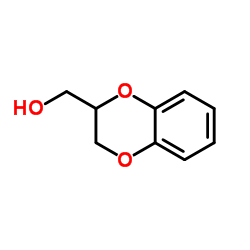
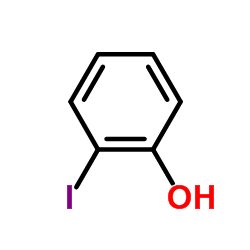
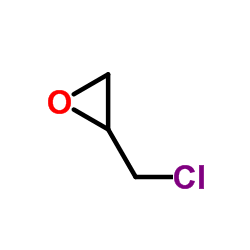
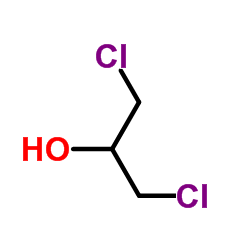
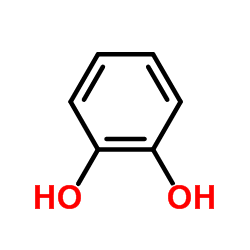
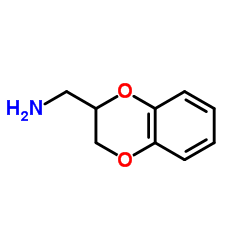 CAS#:4442-59-5
CAS#:4442-59-5![N-((2,3-DIHYDROBENZO[B][1,4]DIOXIN-2-YL)METHYL)PROPAN-2-AMINE structure](https://image.chemsrc.com/caspic/036/21398-64-1.png) CAS#:21398-64-1
CAS#:21398-64-1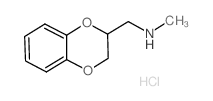 CAS#:2242-31-1
CAS#:2242-31-1 CAS#:21398-66-3
CAS#:21398-66-3 CAS#:21398-65-2
CAS#:21398-65-2 CAS#:59-39-2
CAS#:59-39-2![3-[2,3-dihydro-1,4-benzodioxin-3-ylmethyl(methyl)amino]-N,N-dimethylpropanamide structure](https://image.chemsrc.com/caspic/065/102128-81-4.png) CAS#:102128-81-4
CAS#:102128-81-4![Piperazine,1-[(2,3-dihydro-1,4-benzodioxin-2-yl)methyl]-4-phenyl- structure](https://image.chemsrc.com/caspic/288/1044-59-3.png) CAS#:1044-59-3
CAS#:1044-59-3![4-[(2,3-Dihydro-1,4-benzodioxin-2-yl)methyl]morpholine structure](https://image.chemsrc.com/caspic/326/34274-18-5.png) CAS#:34274-18-5
CAS#:34274-18-5 CAS#:114461-88-0
CAS#:114461-88-0